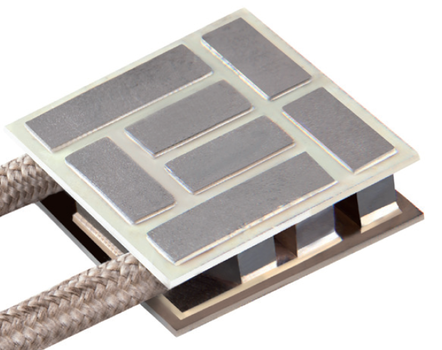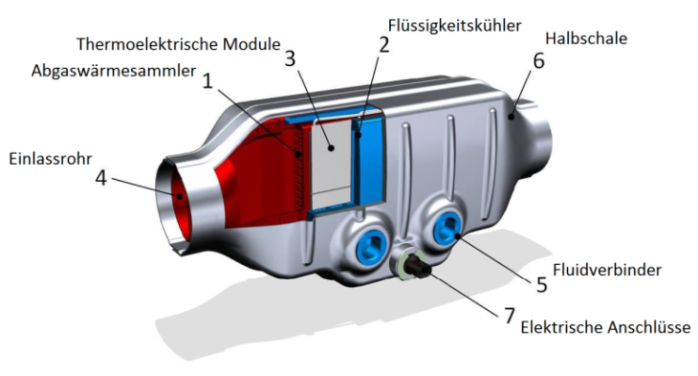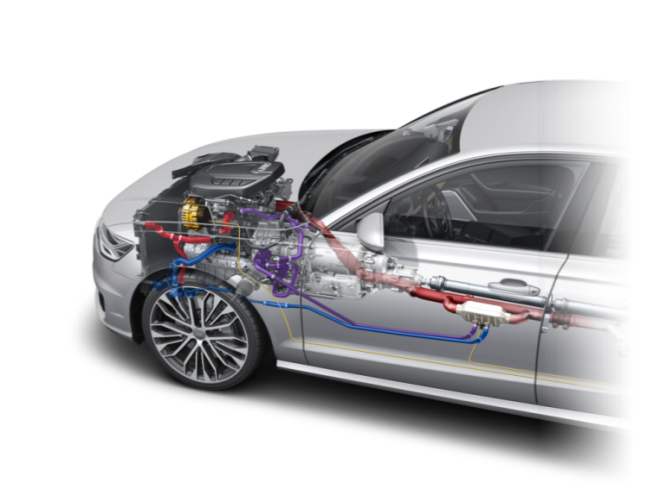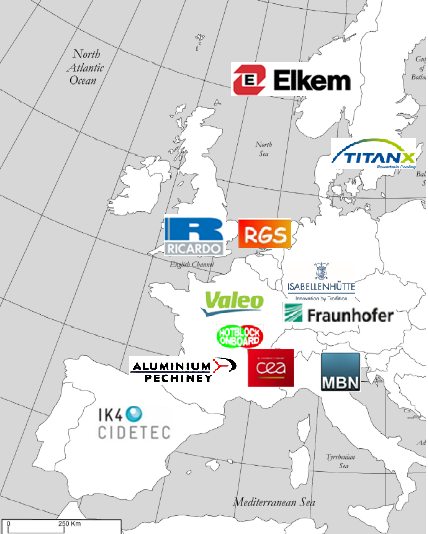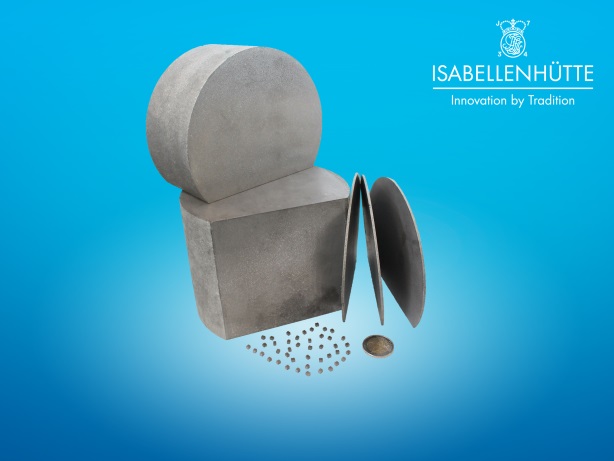thermoHEUSLER
Between 2009 and 2014, Isabellenhütte was involved in the association project thermoHEUSLER. This project was funded by the Federal Ministry of Economics and Technology (BMWI).
Together with the partners Bosch, the Johannes Gutenberg University (JGU) of Mainz, Vacuumschmelze and the Fraunhofer Institute for Physical Metrology, the project consisted of reducing the CO2 emissions of combustion engines by developing low-cost thermoelectric components. The heart of a thermoelectric component is the thermoelectric material. Isabellenhütte's task was to develop manufacturing technology for thermoelectric materials based on half-Heusler alloys.
The scientific literature indicated good thermoelectric properties for these types of alloys. This was practically confirmed by the partner JGU Mainz on a laboratory scale on some gram-heavy samples. After some development time, Isabellenhütte managed for the first time to create thermoelectric half-Heusler material in a melt-metallurgical process on the kg scale. In addition, the homogeneity and reproducibility of the melt blocks produced was demonstrated. The thermoelectric components (fig. 1) made from this material, also called modules, had the greatest known power density for components of their kind according to[1].
[1] Bartholomé, Kilian, et al. "Thermoelectric Modules Based on Half-Heusler Materials Produced in Large Quantities." Journal of Electronic Materials 43.6 (2014): 1775-1781.
Since 2015, Isabellenhütte has been involved in the association project thermoHEUSLER². This is the follow-up project of thermoHEUSLER and, likewise, is funded by the Federal Ministry of Economics and Technology (BMWI).
Together with the partners of Audi, Faurecia Clean Mobility, Siemens, the University of Stuttgart, Vacuumschmelze and the Fraunhofer Institute for Physical Metrology (IPM), this project's goal is to save 5% of fuel consumption of a medium-class passenger car by using thermoelectric generators in the exhaust gas system. The good results from thermoHEUSLER are to be taken as a basis in this project.
Isabellenhütte's task is to continue to develop the manufacturing technology for half-Heusler materials until a process that is series production ready is achieved. In addition, Isabellenhütte is starting a redesign of the thermoelectric modules together with Fraunhofer IPM. The aim is an economical and automated production of such components. At the end of the project, an automated prototype production for thermoelectric modules will be built in Dillenburg.
Thermoelectric modules built in the project will be installed in a so-called thermoelectric generator by the partner Faurecia Clean Mobility (fig. 1). This device will be integrated in the exhaust gas system of a passenger car (fig. 2). It extracts the heat energy from the exhaust gas and converts some of this heat into electrical energy by using the thermoelectric module. Then the partner Audi will examine the generator's performance in a test vehicle under real world conditions.
INTEGRAL
On December 01, 2016, the European Union started the funded research project INTEGRAL. A consortium of 13 companies and institutes from around Europe worked on the industrialization of new thermoelectric materials in this project. Isabellenhütte's task is to demonstrate the industrial manufacturability of half-Heusler materials. A pilot production for half-Heusler materials at the Dillenburg location is being built for this purpose.
Half-Heusler materials were able to prove their function in the laboratory and in initial prototypes. The production has to date, however, taken place under laboratory conditions (see thermoHEUSLER & thermoHEUSLER²). To be able to produce high-quality components for additional prototypes and small series and to arouse interest among possible customers, it will be necessary to build the first pilot production runs.
This project will be supported by a project funded by the European Union. All sections of a possible value creation chain are represented, starting with research institutes like the Fraunhofer Society for Ceramic Materials, to materials manufacturers like Isabellenhütte, to possible customers such as the French automotive supplier Valeo. Isabellenhütte will built a pilot production for components made of half-Heusler material.
In addition to a new smelting furnace, this also includes downstream production steps, such as sawing or grinding. The construction of the pilot line will begin in the summer of 2017. We want to show that it is possible to produce several dozen kilograms of material with high quality and high output by the end of the project in 2019. The material produced by Isabellenhütte is to be tested in a prototype. This is why Isabellenhütte is working together with the Swedish manufacturer for truck components TITANX on a generator for the waste heat recovery for trucks.

